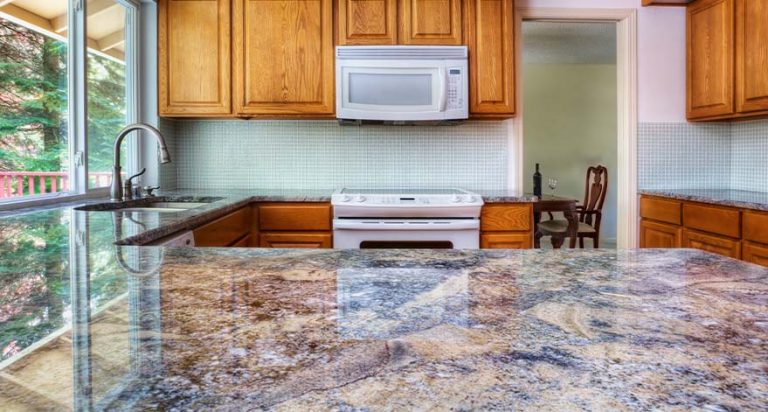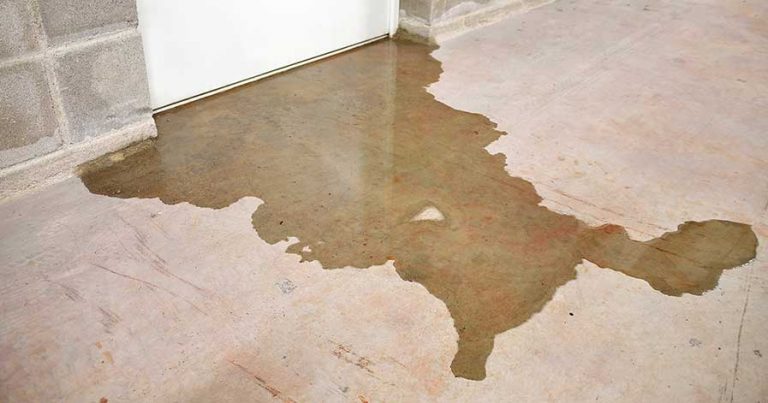4 Ways to Routinely Clean Your Granite Countertops
How to Clean Granite Countertops
Granite countertops can take the look of a kitchen to a whole new level. Since granite is such a hard material, it resists scratches and placing hot items on the counter will not damage it, as granite is also heat resistant. But, do you know how to clean granite countertops when it is needed?
Granite counters are an attractive option as the various minerals within the granite give it a beautiful depth of character. However, to keep granite counters looking their best you need to make sure they are properly cleaned and cared for. Granite may be strong and resilient, but regular maintenance is essential to keep it looking beautiful.
Cleaning Materials You’ll Need
It is not necessary to use fancy cleaning materials on a granite counter. All you really need is a microfiber cloth, warm water and some mild dishwashing liquid. Make sure the dishwashing liquid contains no citrus extracts as they are too acidic for granite countertops.
The manufacturer’s instructions usually recommend certain products and processes. If you do not want to use dishwashing liquid and water, you will need to read them before buying cleaning products.
Daily Cleaning
To clean the counter, simply pour water into a bucket, mix in the soap and then gently apply to the counter with the microfiber cloth. Use small circular motions and rinse the cloth often as you clean. Microfiber cloths work way better than paper towels or cotton cloths because they grab on to the dirt and debris and you do not end up just pushing it from one place to another.
Dried-on food splatter may need a little more elbow grease to remove. If necessary, soak sticky or dry food stains with water or a PH neutral cleanser first, then wipe them away with a microfiber cloth. Do not ever use an abrasive scrubber as this will scratch the granite. Non-abrasive methods usually work fine unless you have a stain.
To avoid water stains, you need to dry off the counter with another dry microfiber cloth. If you want to get maximum shine, buff it to remove all the streaks. Create a daily habit of wiping down counters and immediately wiping up spills, and you will be able to keep them looking good.
Disinfecting Granite
If you want to disinfect granite, all you need to do is mix equal parts of distilled water and isopropyl alcohol in a spray bottle. Spray the countertop and leave the solution on it for two to three minutes. Wipe it down with a microfiber cloth. This should restore the shine.
Seasonal Maintenance
Granite is made up of a variety of minerals, including mica and quartz. As it is a natural material, the porosity can vary. Sealing the granite keeps any bacteria and spills on granite’s surface. This means you can easily wipe them away and they do not end up in the pores of the stone. The sealant provides a thin, invisible barrier between the surface of the counter and whatever ends up on it.
Ideally, you should seal your granite immediately after installation and replace it periodically to protect your investment. It is easy to find out if your countertop needs re-sealing. Splash a little water on the surface and see if it sits in small beads or flows freely. If it does not bead up, it needs re-sealing.
Examine your granite once a year, inspecting for stains or scratches and making sure there is no cracking at the seams. Delaying any repairs can lead to more expensive repairs and you may even have to replace your counters.
Removing Granite Stains
Dealing with stained granite can be difficult, so it is best to try and avoid stains in the first place by wiping up spills as soon as they happen. You can also try using coasters. The quicker you deal with stains, the more success you will have in getting rid of them. The methods and products you use will depend on the type of stain. Acidic drinks, such as juices or sodas, as well as acidic food and condiments, can cause “etching” if they spill, which is why you need to wipe them up quickly.
It is possible to use some common household items to remove stains. For oily stains, try using a cup of baking soda and a few tablespoons of dish soap. Add water to make it into the consistency of a paste.
Spoon and spread the paste over the stain and cover the area with plastic wrap, taping down the edges. Leave it overnight or for a day or two and then rinse and wipe down the granite. For water-based stains, you can mix the baking soda with hydrogen peroxide, add water to make a paste and follow the same method as above.
If you fail to remove stains from counters, it could be because the sealant is no longer functioning as it should. If the sealant is to blame, stained granite becomes hard to clean and you may need to hire a professional to clean and properly reseal the stone.
Products to Avoid
Never use abrasive cleaners or harsh chemicals like ammonia-based products or bleach on your countertops, even if you think a stain warrants it. A product like steel wool or a scrub sponge can etch, scratch or pit the stone surface permanently.
Avoid cleaning granite countertops with vinegar or other acidic products containing lemon, lime or citrus. Stay away from commercial cleaners that contain citrus extracts or oils. Never use common household cleaners like Windex or Lysol. These products will wear away at the surface sealant and eat away at the stone. This makes counters look lackluster and dull, and more likely to absorb stains.
A Final Word
Once you have invested in beautiful new granite countertops, it is important to keep them looking their best. Granite is a durable material, but it will scratch, etch or stain if you do not care for it properly. Proper maintenance is not difficult or time-consuming but needs to be done consistently if you want to continue to enjoy your countertops for many years to come.

